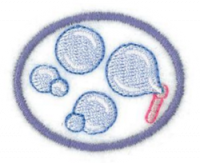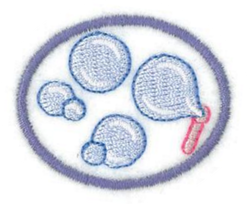Difference between revisions of "AY Honors/Bubbles/Requirements/es"
(Created page with "</noinclude>Temperatura <noinclude>") |
(Created page with "</noinclude>Viento <noinclude>") |
||
| Line 41: | Line 41: | ||
<b>3. <section begin=req3 /><noinclude></noinclude>Hacer un modelo o dibujo de una molécula de jabón. <noinclude></noinclude><section end=req3 /></b> | <b>3. <section begin=req3 /><noinclude></noinclude>Hacer un modelo o dibujo de una molécula de jabón. <noinclude></noinclude><section end=req3 /></b> | ||
| − | <b>4. <section begin=req4 /><noinclude> | + | <b>4. <section begin=req4 /><noinclude></noinclude>Mostrar por qué la molécula es hidrófilo o hidrófobo. |
| − | </noinclude> | + | <noinclude></noinclude><section end=req4 /></b> |
| − | <noinclude | ||
| − | |||
<b>5. <section begin=req5 /><noinclude><div lang="en" dir="ltr" class="mw-content-ltr"> | <b>5. <section begin=req5 /><noinclude><div lang="en" dir="ltr" class="mw-content-ltr"> | ||
Revision as of 08:11, 5 April 2021
Nivel de destreza
2
Año
2015
Version
08.02.2026
Autoridad de aprobación
División Norteamericana
1. Definir los siguientes términos:
- a. Burbuja de jabón
- b. Hidrofílico
- c. Hidrofóbico
- d. Tensión superficial
- e. Energía mínima
- f. Superficie mínima
2. ¿Cómo los siguientes factores climáticos afectan la vida de una burbuja y cómo?
- a. Humedad
- b. Temperatura
- c. Viento
- d. Precipitación
3. Hacer un modelo o dibujo de una molécula de jabón.
4. Mostrar por qué la molécula es hidrófilo o hidrófobo.
5.Surface Tension
- a.
Explain what causes surface tension.
- b.
Conduct an experiment to determine if soapy water has higher or lower surface tension.
Wands:
- a.
Explain what types of material work best for the loop of large bubble wands?
- b.
Construct a wand to make large bubbles.
7.
Components:
- a.
What water quality works best for bubbles? What impurities negatively affect bubble quality?
- b.
What soaps are best for bubble solution?
- c.
What is the purpose of glycerin or corn syrup in a solution?
- d.
Learn a formula for a bubble solution and mix a batch of bubble solution.
- e.
Evaluate your bubble solution and make a better recipe if necessary.
8.
Experiments:
- a.
Show what happens when bubbles meet bubbles? How does this illustrate minimal energy and minimal surface?
- b.
What causes colors in a bubble? Demonstrate constructive and destructive interference.
- c.
What shape are bubbles and why? Do an experiment to illustrate the answer.


